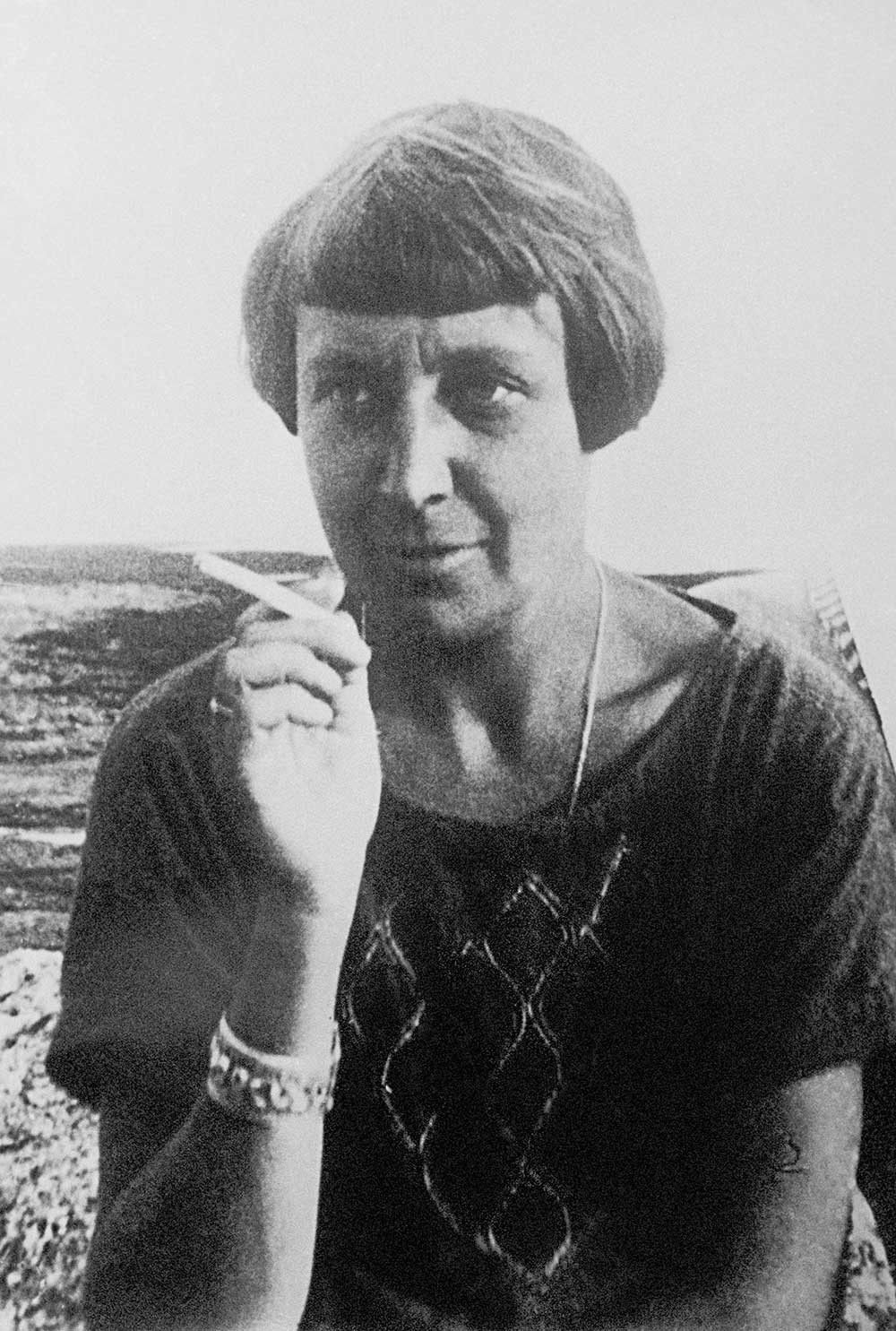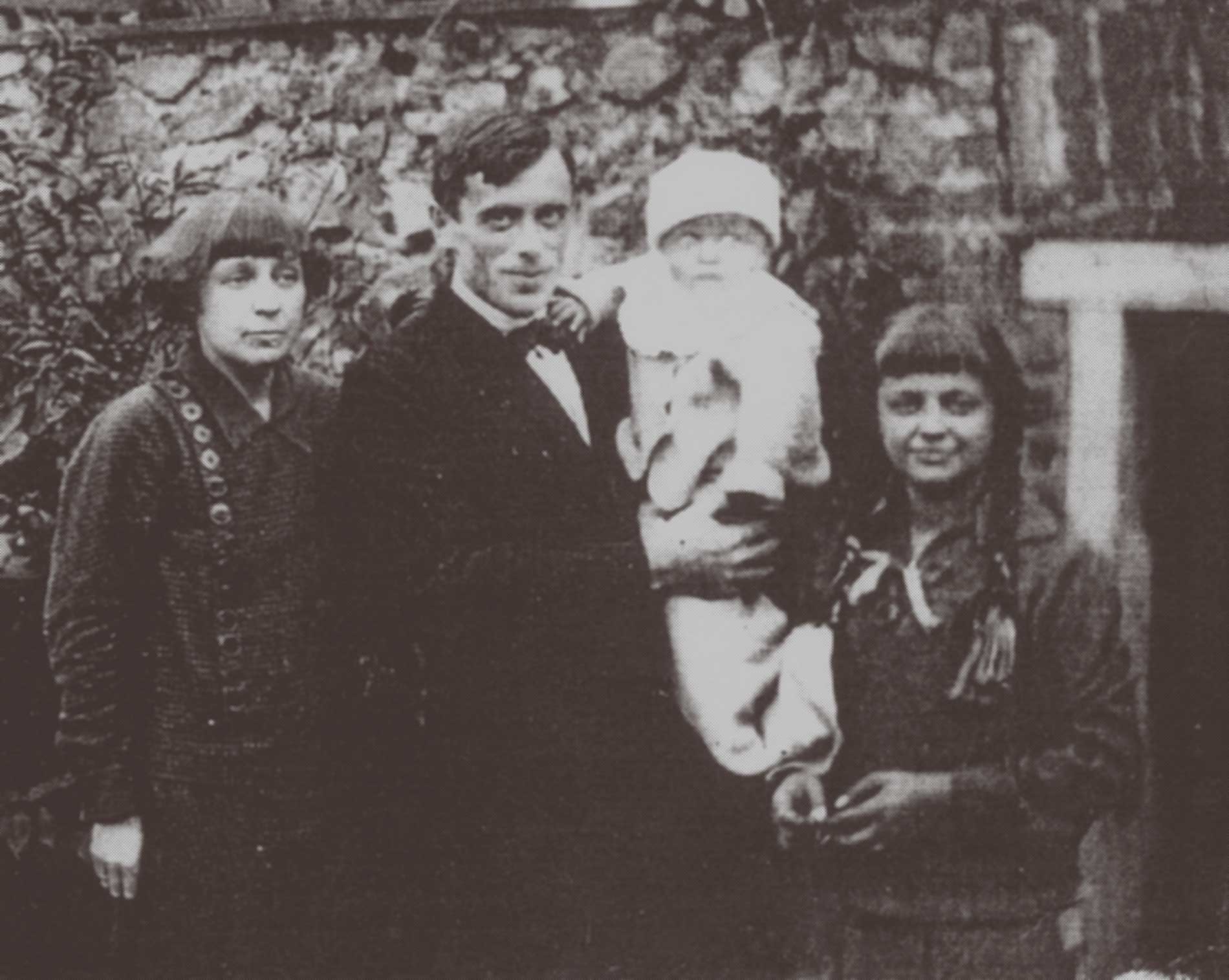
Marina Tsvetaeva in France, 1926
TASS1. She was a child prodigy and a polyglot
Marina Tsvetaeva came from a very artistic family. Her father was a professor of fine art who founded the Pushkin Museum of Fine Arts, and her mother was a concert pianist, one of Nikolai Rubinstein’s best students. Perhaps because she was surrounded by art and music, Marina was an extremely precocious child. She began writing poetry at the age of
2. Marina had a ‘complicated’ relationship with her mother
Maria Alexandrovna (Marina’s mother) suffered many disappointments in her life. The first: After having an affair with a married man whom she loved, Maria was forced to marry Ivan Vladimirovich Tsvetaev. Together they had two daughters, though she desperately wanted sons. Maria was disappointed yet again when she discovered that her eldest, Marina, was giving up the piano to write poetry, and discouraged her from writing. When Marina was a girl, she learned of her mother’s unhappiness in her diaries:
“…having married a widower with two children to the misfortune of those children and of others, while loving and continuing to love the other one…” (as Simon Karlinsky quotes her in his book Marina Tsvetaeva: The Woman, Her World, and Her Poetry (1985).
So as Karlinksy writes, Marina felt unwanted by her mother and often daydreamed of being adopted by an imaginary devil. She said she had “a frenzied wish to become lost” in the city of
3. Marina was bisexual
Marina had at least two well-known relationships with women: The first, with poet Sophia Parnok, and the second, with actress Sofya Evgenievna Holliday. She documented her relationship with Parnok in the autobiographical novella The Story of Sonechka. At times, Marina would scoff at the social expectations of sexual identity in her diaries and letters:
“For a woman to love only women, or for a man to love only men, deliberately excluding the conventional opposite—what horror! And to say that only men can love women, or that only women can love men,

Marina Tsvetaeva with husband and children in Prague
Getty Images4. There are still unanswered questions about Marina’s suicide
In 1939 she returned to Moscow after spending almost three decades in exile. She and her son Georgy (called often “Mur”) joined her daughter,
5. She viewed poetry as a source of life
Herpoems are famously difficult to translate, and this is partly because of the author’s philosophy of language and her relationship to poetry. She believed that words had a direct connection to the essence of “things” - to the spirit of life. Joseph Brodsky once remarked that: “Between word and action, art and life, for her there was no comma, no hyphen; Tsvetaeva put an equal sign between the two.” In fact, Tsvetaeva thought of poetry as a source of life itself:
Poems grow like stars, like flowers,
Like the beauty a family never needs.
And there’s only one answer possible
To praise, the apotheosis: Why to me?
We sleep—and then, between the paving stones,
The divine visitation, quatrefoil.
Understand me, world. The poet’s dream reveals
The law of stars, the formulas of flowers.
Trans. by Paul Schmidt, The Bitter Air of Exile, 94.
If using any of Russia Beyond's content, partly or in full, always provide an active hyperlink to the original material.
Subscribe
to our newsletter!
Get the week's best stories straight to your inbox